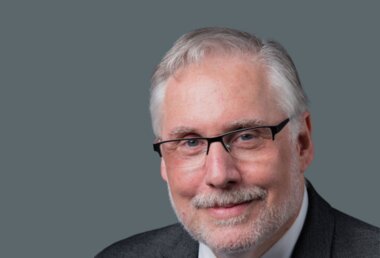Neuropsychiatry: The View from Massachusetts
Prof Sheldon Benjamin [pictured] guest blogs on his six months as a visiting professor at the IoPPN, and the differences between US and UK approaches.
 Medical educators are not accustomed to the privilege of sabbatical leave, at least not in our corner of the globe.
Medical educators are not accustomed to the privilege of sabbatical leave, at least not in our corner of the globe.
But the generosity of the Dean of the UMass Chan School of Medicine in Worcester, Massachusetts - where I serve as Professor of Psychiatry and Neurology - and the hospitality of the Neuropsychiatry Research and Education Group in the department of Psychological Medicine at the Institute of Psychiatry Psychology & Neuroscience (IoPPN), King’s College London, afforded me the gift of six months sabbatical to study, write, network, and travel as a Visiting Professor of Neuropsychiatry.
Good fortune
While working at my primary task of editing a new textbook of neurology for psychiatrists I had the good fortune of joining with Neuropsychiatry colleagues at King’s College London to compare educational and healthcare systems, provide lectures to the consultant faculty, registrars and MSc students, attend educational events, and get to know many wonderful UK colleagues.
In addition to those at King’s College London and the associated famous Maudsley Hospital, I also visited the neuropsychiatry group and provided a lecture at the National Hospital for Neurology and Neurosurgery at Queen Square and interacted with a number of other UK neuropsychiatrists.
A career evaluating people
My background is somewhat unusual in US medicine. After completing medical school, I undertook medical residencies in both Psychiatry and Neurology and completed a fellowship in Behavioral Neurology. This was to gain the tools I felt would serve best to evaluate brain-behavior relationships in psychiatric patients with neurological symptoms and neurological patients with psychiatric symptoms. I have spent my career evaluating people with problems at the interface of neurology and psychiatry – problems such as dementia, movement disorders, epilepsy, developmental disability, traumatic brain injury, demyelinating disease, stroke sequelae, and so-called functional neurologic disorders.
Along the way I became an educator. For 25 years I was the director of the UMass Psychiatry Residency Program (analogous to registrar training) and founding director of a unique combined residency program in neurology and psychiatry, one of four in the US.
Studying brain function
Entering psychiatric training 43 years ago when brain imaging techniques were on the horizon and the layers of the onion of psychiatric neuroscience were beginning to be peeled away, I was struck with the great need for psychiatrists to study brain function. Yet in the US, the study of neurology was then seen as an inconvenient requirement on the way to specialty board certification in psychiatry, and the study of psychiatry was not felt terribly important in the training of neurologists.
It seemed to me that neurology and psychiatry were two specialties separated by a common organ of interest - much as the people of the UK and the US are, with tongue firmly in cheek, said to be separated by a common language.
Lacking established training paths
In my career I’ve sought every opportunity I could to gently nudge psychiatry toward embracing its identity as a brain science. During my time in London, I was impressed with the UK’s two MSc programs in neuropsychiatry for which there is no clear parallel in the US. But I also heard the consternation of UK neuropsychiatry educators that the UK lacks a formal established training path for neuropsychiatry. The tradition of one-year subspecialty fellowships in neuropsychiatry as we are used to in the USA has not been established in the UK. And fully training in both fields is not routinely done here.
On the other hand, I saw consultants in Psychological Medicine and Old Age Psychiatry practicing a sophisticated form of neuropsychiatry, even though the subspecialty of Neuropsychiatry is not yet formally accredited.
I would be remiss if I didn’t mention the warm hospitality I enjoyed from Dr Tim Nicholson, Profs Trudie Chalder, Sir Simon Wessely, Mike Kopelman, Mike Trimble (UCL), Anthony David (UCL) and so many others. I look forward to our ongoing trans-Atlantic educational collaboration.
Prof Sheldon Benjamin, MD
Professor of Psychiatry and Neurology
Director of Neuropsychiatry
Vice Chair for Education in Psychiatry
University of Massachusetts T. H. Chan School of Medicine
Worcester, Massachusetts
Visiting Professor in Neuropsychiatry at Institute of Psychiatry Psychology & Neuroscience, King’s College London March-August 2023
To learn more about the work of KHP Neurosciences, visit its webpages here.